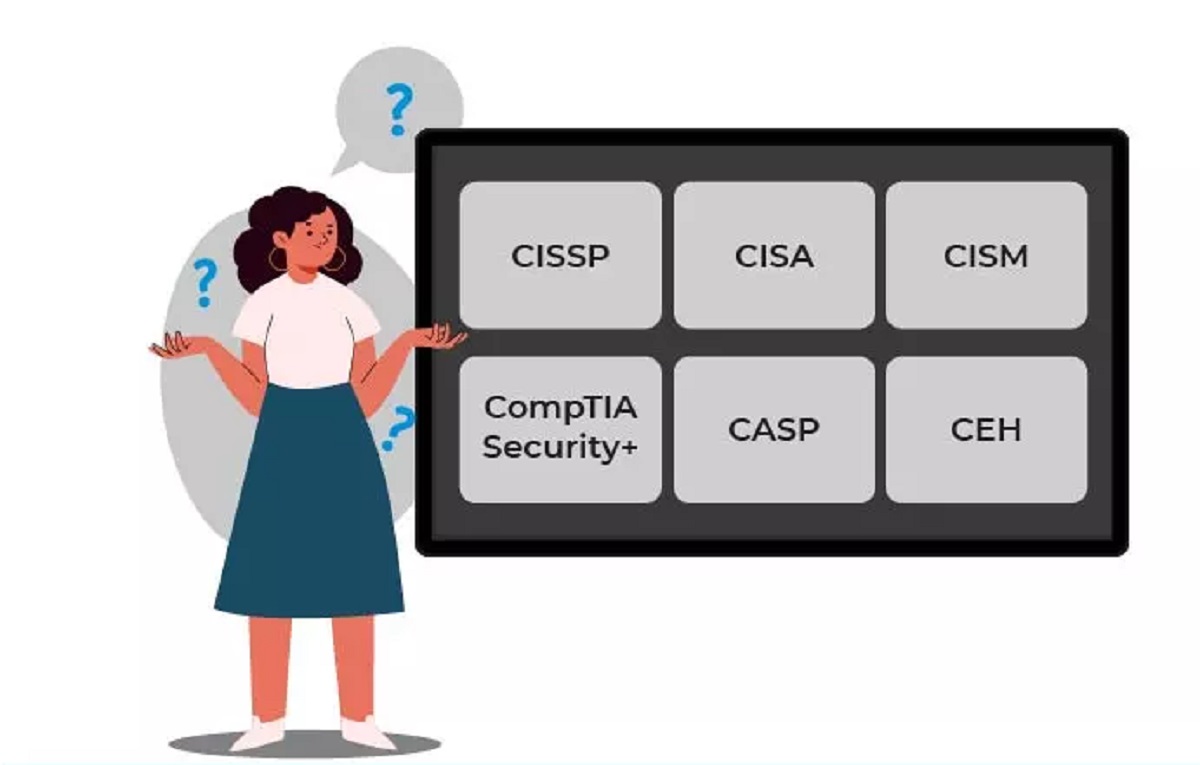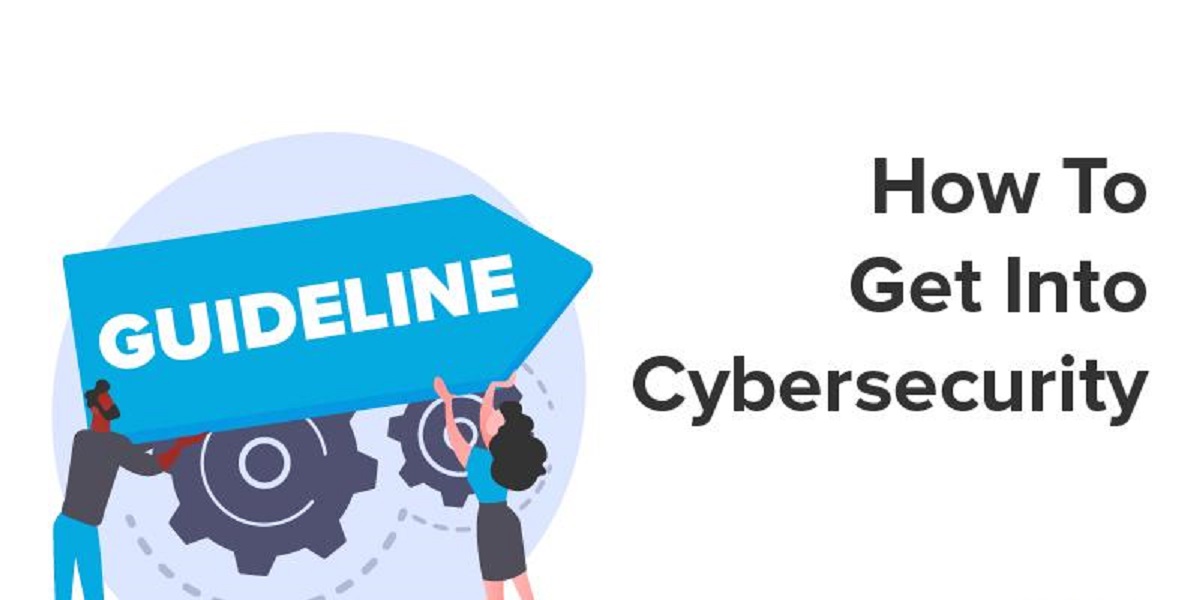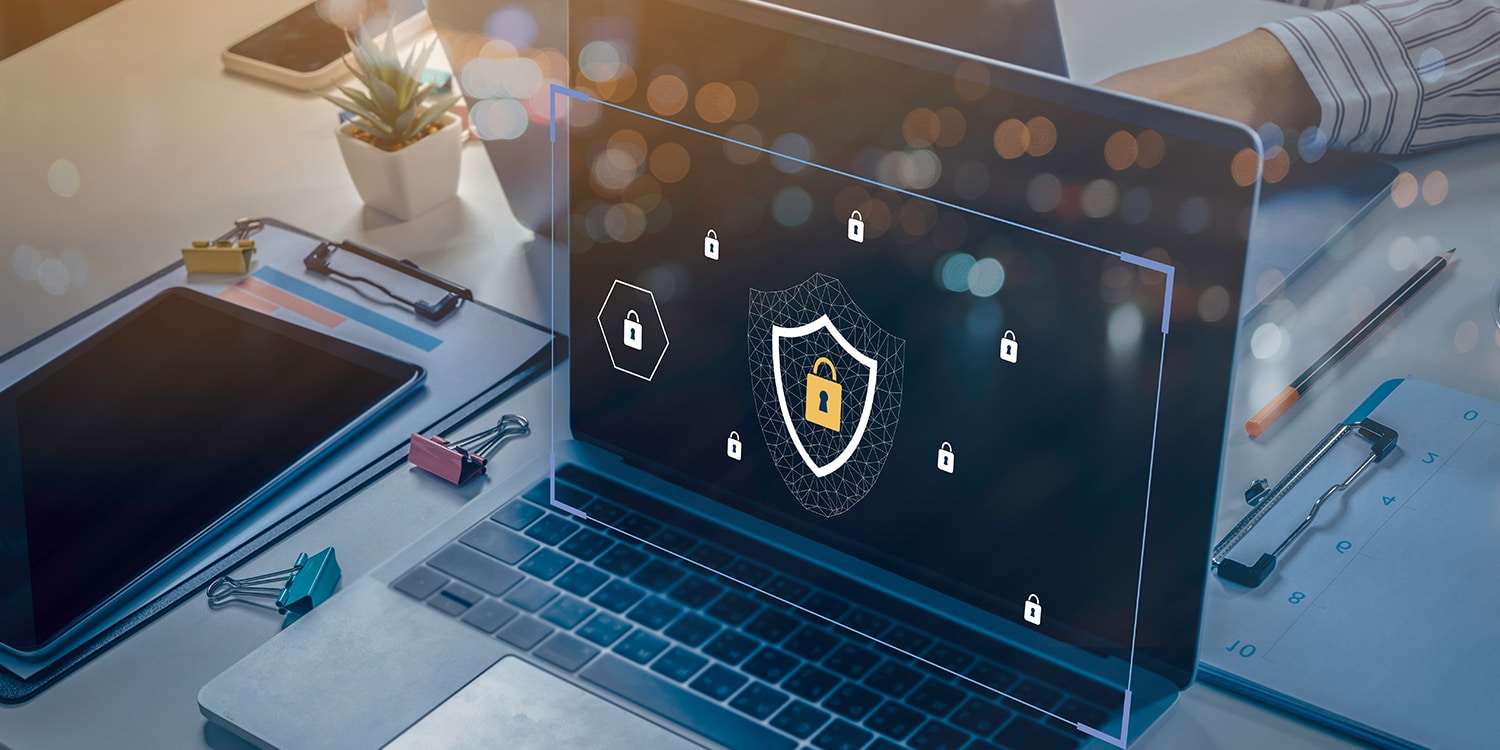Introduction
Welcome to the world of cybersecurity, where protecting sensitive data and ensuring the integrity of digital systems are paramount. With the ever-increasing threats in the digital landscape, the need for skilled professionals in cybersecurity has never been greater.
Cybersecurity certifications play a crucial role in demonstrating your expertise and credibility in this field. These certifications validate your knowledge and skills in various aspects of cybersecurity, making you a sought-after professional in today’s job market.
In this article, we will explore the importance of cybersecurity certifications, the different types available, and how to choose the right certification for your career aspirations. We will also delve into the steps involved in obtaining a cybersecurity certification, preparing for the certification exam, and the benefits of holding a cybersecurity certification.
Whether you are an aspiring cybersecurity professional or a seasoned expert looking to advance your career, this article will provide valuable insights into the world of cybersecurity certifications.
So, let’s dive in and discover how you can enhance your knowledge, skills, and marketability in the exciting field of cybersecurity through certifications.
Why Cybersecurity Certifications are Important
In today’s digital age, cybersecurity is a critical concern for organizations worldwide. The increasing number of cyber threats poses a significant risk to sensitive data, intellectual property, and the overall functioning of businesses. In such a scenario, cybersecurity certifications are essential for several reasons.
First and foremost, cybersecurity certifications validate your expertise and proficiency in the field. They showcase your knowledge and skills in areas such as network security, ethical hacking, incident response, and risk management. This validation not only enhances your professional reputation but also provides employers with confidence in your abilities.
Moreover, cybersecurity certifications demonstrate your commitment to ongoing learning and professional development. These certifications require continuous education and renewal, ensuring that you stay up to date with the latest trends, technologies, and best practices in the ever-evolving cybersecurity landscape.
Employers often prioritize hiring candidates with cybersecurity certifications. These certifications serve as a tangible proof of your competence and can set you apart from other candidates in a competitive job market. Additionally, holding a cybersecurity certification can lead to better job prospects, higher salaries, and increased opportunities for advancement within your organization.
Cybersecurity certifications also provide a framework for standardization in the industry. They establish a common set of knowledge and skills that professionals in the field should possess. This ensures that cybersecurity professionals meet the industry’s standards and adhere to best practices, ultimately resulting in a more secure digital environment for organizations and individuals.
Furthermore, cybersecurity certifications can enhance your credibility and trustworthiness as a professional. Clients, stakeholders, and colleagues are more likely to have confidence in your abilities when they see that you hold recognized certifications in the cybersecurity field. This can be particularly advantageous if you work in a consulting or advisory role where trust and credibility are crucial.
Overall, cybersecurity certifications are vital for staying relevant, advancing your career, and contributing to a secure digital ecosystem. They not only validate your knowledge and skills but also provide you with the tools and confidence to tackle the complex challenges of cybersecurity in today’s fast-paced and ever-changing landscape.
Types of Cybersecurity Certifications
The field of cybersecurity offers a wide range of certifications, each focusing on different aspects of the industry. These certifications cover various domains, including network security, ethical hacking, digital forensics, risk management, and more. Understanding the different types of cybersecurity certifications can help you choose the right one for your career goals. Here are some popular certifications:
- CompTIA Security+: This entry-level certification covers foundational knowledge of cybersecurity principles, risk management, and threat identification. It is a vendor-neutral certification widely recognized and accepted in the industry.
- CISSP (Certified Information Systems Security Professional): Regarded as one of the most prestigious certifications, CISSP validates expertise in various cybersecurity domains, including security and risk management, asset security, and communications and network security. It is ideal for experienced professionals seeking advanced-level certifications.
- Certified Ethical Hacker (CEH): This certification focuses on ethical hacking techniques and tools. CEH professionals possess knowledge of vulnerabilities and weaknesses in systems and are skilled in penetration testing and vulnerability assessment.
- GIAC Certifications: The Global Information Assurance Certification (GIAC) offers a wide range of specialized certifications, such as GIAC Certified Incident Handler (GCIH), GIAC Web Application Penetration Tester (GWAPT), and GIAC Certified Intrusion Analyst (GCIA). These certifications provide in-depth knowledge and skills in specific areas of cybersecurity.
- Offensive Security Certified Professional (OSCP): OSCP is highly regarded in the field of ethical hacking and penetration testing. It focuses on real-world scenarios and practical skills, requiring candidates to complete hands-on challenges and a 24-hour examination.
- CISM (Certified Information Security Manager): This certification is designed for professionals involved in the management and governance of information security. CISM validates skills in the development and management of an enterprise’s information security program.
- CCNP Security (Cisco Certified Network Professional Security): CCNP Security is a vendor-specific certification from Cisco that focuses on securing Cisco networks. It covers topics such as network security, VPN implementation, and identity management.
These are just a few examples of the many cybersecurity certifications available. The right certification for you depends on your experience level, career goals, and areas of interest. It is essential to research and carefully consider the requirements and content of each certification before making a decision.
Remember, obtaining multiple certifications can broaden your knowledge and open doors to different opportunities in the cybersecurity field. Choose certifications that align with your goals and interests, and continue to invest in your professional development to stay competitive in this rapidly evolving industry.
Choosing the Right Cybersecurity Certification
With the multitude of cybersecurity certifications available, choosing the right one can be overwhelming. However, considering a few key factors can help you make an informed decision. Here are some considerations to keep in mind when selecting a cybersecurity certification:
1. Career Goals: Determine your career aspirations in the cybersecurity field. Are you interested in penetration testing, network security, or risk management? Understanding your career goals will help you identify certifications that align with your desired job roles and responsibilities.
2. Experience Level: Assess your level of experience in cybersecurity. Some certifications are designed for entry-level professionals, while others require extensive industry experience. Ensure that the certification you choose matches your experience level to maximize its value.
3. Relevance: Research the current trends and demands in the cybersecurity industry. Look for certifications that address the specific skills and knowledge currently sought after by employers. Choose certifications that are relevant to the areas of cybersecurity you want to specialize in.
4. Certification Requirements: Each certification has its own set of prerequisites, such as education, experience, or passing other exams. Evaluate whether you meet the requirements for the certification you are considering. If you don’t meet them yet, identify the steps you need to take to fulfill them.
5. Industry Recognition: Consider the reputation and recognition of the certification in the cybersecurity industry. Look for certifications that are well-regarded and widely recognized by employers, professional organizations, and peers. This recognition can enhance your credibility and increase your job prospects.
6. Time and Cost: Assess the time and financial commitment required to obtain the certification. Some certifications may require extensive study and preparation. Consider the resources, study materials, and exam fees associated with the certification to ensure that you can dedicate the necessary time and budget.
7. Continuing Education: Check whether the certification requires ongoing education or renewal to stay valid. Staying up to date with the latest advancements in cybersecurity is essential, so consider certifications that emphasize continuous learning and professional development.
8. Seek Advice: Consult with professionals in the cybersecurity field, mentors, or industry experts who hold certifications. Their insights and guidance can provide valuable perspectives and help you make an informed decision.
Keep in mind that there is no one-size-fits-all answer when it comes to choosing a cybersecurity certification. It is crucial to select a certification that aligns with your career goals, interests, and current skill set. By choosing wisely, you can embark on a certification journey that enhances your knowledge, skills, marketability, and ultimately contributes to your long-term success in the cybersecurity industry.
Top Cybersecurity Certifications in the Industry
The field of cybersecurity offers a wide array of certifications, but some certifications have gained recognition and are highly regarded in the industry. These certifications validate the skills and expertise required to excel in various cybersecurity domains. Here are some of the top cybersecurity certifications:
- CISSP (Certified Information Systems Security Professional): Widely recognized as a premier cybersecurity certification, CISSP demonstrates expertise in eight domains, including security and risk management, asset security, and cryptography. It is highly regarded by employers and is suitable for experienced professionals.
- CISM (Certified Information Security Manager): CISM focuses on information security management, governance, and risk assessment. This certification is ideal for professionals involved in managing and overseeing an organization’s cybersecurity program.
- CEH (Certified Ethical Hacker): CEH certifies individuals with skills in ethical hacking and penetration testing. It equips professionals with the knowledge to identify vulnerabilities in systems and networks, making it valuable for offensive security roles.
- CompTIA Security+: As an entry-level certification, Security+ covers foundational cybersecurity concepts, risk management, and network security. It is recognized globally and serves as a stepping stone for further cybersecurity certifications.
- CCNA Security (Cisco Certified Network Associate Security): This Cisco certification focuses on securing Cisco networks, covering topics such as network security, VPN technologies, and identity management. It is a vendor-specific certification highly regarded in the networking industry.
- OSCP (Offensive Security Certified Professional): OSCP is well-regarded in the ethical hacking and penetration testing community. It emphasizes practical skills through a hands-on examination and is valued for its rigorous assessment of real-world scenarios.
- GIAC Certifications: The Global Information Assurance Certification offers specialized certifications in various areas, such as incident handling, penetration testing, and forensic analysis. GIAC certifications demonstrate expertise in specific cybersecurity domains.
These certifications are considered among the top in the industry due to their comprehensive coverage, recognition, and demand in the job market. However, it is essential to note that the “top” certifications can vary based on individual career goals, industry trends, and geographic locations.
When selecting a certification, consider your specific career aspirations, experience level, and desired specialization within cybersecurity. Research the requirements, content, and industry recognition of each certification to determine which aligns best with your goals.
Ultimately, the top cybersecurity certifications are those that provide you with the necessary knowledge and skills to excel in your chosen field, enhance your professional reputation, and open doors to exciting career opportunities in the ever-evolving world of cybersecurity.
Steps to Obtain a Cybersecurity Certification
Earning a cybersecurity certification requires careful planning, preparation, and dedication. Following a structured approach will increase your chances of success. Here are the steps you can take to obtain a cybersecurity certification:
1. Research and Select: Begin by researching the different cybersecurity certifications available and their requirements. Consider your career goals, interests, and experience level to choose the certification that aligns with your objectives.
2. Understand the Certification Path: Familiarize yourself with the certification path and any prerequisites. Some certifications may require earning lower-level certifications or meeting specific educational and professional experience criteria.
3. Study and Prepare: Once you have selected a certification, gather study materials, such as textbooks, online courses, practice exams, and study guides. Create a study plan and allocate dedicated time for learning and review.
4. Hands-on Experience: Seek opportunities to gain practical experience in the relevant cybersecurity areas. Hands-on experience helps you apply theoretical knowledge, build practical skills, and gain a deeper understanding of real-world scenarios.
5. Training and Workshops: Consider attending training sessions or workshops designed specifically for the certification you are pursuing. These resources provide structured learning and guidance from experienced professionals.
6. Practice Exams: Take advantage of practice exams and sample questions to assess your knowledge and identify areas for improvement. Practice exams also familiarize you with the format and style of the actual certification exam.
7. Exam Registration: Once you feel confident in your preparation, register for the certification exam. Pay attention to registration deadlines and ensure you meet all necessary requirements, such as identification documents or proof of prerequisites.
8. Exam Day Preparation: Review your study materials, get a good night’s sleep before the exam, and plan your logistics for reaching the exam location. Arrive early to minimize stress and allow yourself time to settle in before the exam begins.
9. Take the Exam: During the exam, read the questions carefully, manage your time effectively, and remain calm. Don’t rush through the questions. Instead, take a systematic approach and answer confidently based on your knowledge and preparation.
10. Obtain Certification: Once you have successfully passed the exam, you will receive your certification. Celebrate your achievement and update your resume and professional profiles to reflect your new certification.
11. Continuing Education: Remember that maintaining your certification often requires continuing education. Stay updated with the latest developments in the field, attend webinars and conferences, and engage in ongoing professional development to keep your certification current.
By following these steps and maintaining a disciplined approach, you can obtain a cybersecurity certification that validates your skills, knowledge, and commitment to the field. Remember that certification is a milestone in your cybersecurity journey, and continuous learning and growth are essential for long-term success in this dynamic industry.
Preparing for the Certification Exam
Preparing for a cybersecurity certification exam requires a strategic and focused approach. Proper preparation increases your chances of success and ensures you have the knowledge and skills necessary to excel. Here are some essential steps to help you prepare for the certification exam:
1. Understand the Exam Objectives: Familiarize yourself with the exam objectives and the topics that will be covered. Review the certification exam blueprint, which outlines the specific knowledge areas and skills that will be tested.
2. Create a Study Plan: Develop a study plan that outlines a clear timeline and study schedule. Set specific goals for each study session and allocate sufficient time to cover all the essential topics. This will help you stay organized and on track.
3. Gather Study Materials: Collect relevant study materials, such as textbooks, online resources, practice exams, and study guides. Choose reputable sources that align with the exam objectives and provide in-depth coverage of the required knowledge areas.
4. Practice with Sample Questions: Utilize sample questions and practice exams to familiarize yourself with the style and format of the actual certification exam. This will help you understand the types of questions you may encounter and build your confidence.
5. Hands-on Practice: Seek opportunities to apply your knowledge in real-world scenarios. Set up a lab environment or use virtual platforms to practice implementing and troubleshooting various security concepts and techniques.
6. Join Study Groups or Forums: Engage with other individuals preparing for the same certification by joining study groups or online forums. Collaborating with peers can provide valuable insights, clarification, and additional learning resources.
7. Review and Reinforce: Regularly review the material you have studied to reinforce your understanding. Focus on difficult topics and areas where you feel less confident. Use mnemonic devices or flashcards to aid in memorization.
8. Simulate Exam Conditions: As you approach the exam date, simulate exam conditions by taking timed practice exams. This will help you familiarize yourself with the time constraints and build your stamina for the actual exam.
9. Identify Weaknesses: Continuously assess your understanding of the exam topics as you prepare. Identify areas where you feel weak and allocate more study time to those topics. Seek additional resources or consider seeking guidance from experienced professionals or instructors.
10. Stay Healthy and Manage Stress: Prioritize self-care during the exam preparation phase. Get enough rest, eat nutritious meals, exercise regularly, and manage stress effectively. Taking care of your overall well-being will help you maintain focus and perform better on exam day.
11. Confidence Building: Believe in your abilities and remain confident throughout the preparation process. Positive affirmations and visualizations can help you build confidence. Surround yourself with a supportive network that encourages and motivates you.
Remember, preparing for a certification exam requires time and effort. Stay disciplined, follow your study plan, utilize the available resources, and remain focused on your goals. By adopting a comprehensive and strategic approach to exam preparation, you can position yourself for success and increase your confidence on exam day.
Taking the Certification Exam
After thorough preparation, the day of the certification exam has finally arrived. Taking the certification exam can be nerve-wracking, but with the right approach, you can optimize your performance and increase your chances of success. Here are some key steps to consider when taking the certification exam:
1. Arrive Early: Plan to arrive at the exam location early to allow ample time for check-in procedures and to get acquainted with the environment. Being punctual helps reduce stress and ensures a smooth start to your exam experience.
2. Read Instructions Carefully: Once you are seated for the exam, carefully read all the instructions provided. Understand the format of the exam, time limitations, and any specific rules or restrictions you need to follow during the examination.
3. Manage Time Effectively: Assess the number of questions and allocate your time wisely. Avoid spending excessive time on difficult questions that may hinder your progress. Mark challenging questions and return to them later if time permits.
4. Remain Calm and Focused: Stress and anxiety can negatively impact your performance. Take slow, deep breaths to calm your nerves. Trust in your preparation and maintain a focused mindset throughout the exam.
5. Read Questions Thoroughly: Carefully read each question and all its components. Understand what is being asked before selecting your answer. Pay attention to keywords and phrases that may guide you towards the correct response.
6. Use Process of Elimination: If you are unsure about an answer, utilize the process of elimination to eliminate obviously incorrect options. This strategy improves your chances of selecting the correct answer from the remaining choices.
7. Answer All Questions: Attempt to answer all the questions within the given time frame. Even if you are uncertain about a particular question, make your best-educated guess. Leaving questions unanswered reduces your chances of earning points.
8. Review and Double-Check: Once you have completed the exam, if time allows, review your answers. Verify that you have not missed any questions or accidentally made errors. Pay attention to detail and make any necessary revisions.
9. Remain Professional: Maintain professionalism throughout the exam by refraining from discussing the content of the questions or interacting with other test-takers. Stay focused on your own exam and avoid distractions that may affect your concentration.
10. Submit with Confidence: When you have reviewed and are satisfied with your answers, submit your exam with confidence. Take pride in the efforts you have put into your preparation and trust that you have done your best.
Remember that the certification exam is just one step in your cybersecurity journey. Regardless of the outcome, appreciate the learning experience and consider it as an opportunity for growth. If you are unsuccessful, use the experience as a learning opportunity, identify areas for improvement, and consider retaking the exam after further preparation.
By adopting a calm and focused approach, employing effective exam strategies, and trusting in your abilities, you can navigate the certification exam successfully and move forward on your path towards achieving your cybersecurity goals.
renewing and maintaining your cybersecurity certification
Obtaining a cybersecurity certification is a significant achievement, but it’s important to remember that certifications typically have an expiration date. Renewing and maintaining your certification demonstrates your commitment to staying current in the field and upholding the standards set by the certification body. Here’s what you need to know about renewing and maintaining your cybersecurity certification:
1. Understand Renewal Requirements: Familiarize yourself with the renewal requirements for your specific certification. Each certification has its own set of criteria, such as earning continuing education credits, completing professional development activities, or retaking the exam after a certain period.
2. Stay Updated in the Field: Cybersecurity is a rapidly evolving field, so it’s crucial to stay updated with the latest trends, technologies, and best practices. Engage in continuous learning by attending workshops, webinars, conferences, or pursuing advanced certifications to expand your knowledge and skills.
3. Earn Continuing Education Credits: Many certification programs require you to earn a certain number of continuing education credits to renew your certification. These credits can be earned through attending relevant training programs, participating in industry conferences, or completing online courses offered by recognized providers.
4. Engage in Professional Development: Engaging in professional development activities helps you broaden your skillset and demonstrate your dedication to ongoing growth. This can include taking on new projects, participating in industry-related committees, contributing to cybersecurity publications, or volunteering in cybersecurity community initiatives.
5. Document and Track Your Activities: Keep proper records and documentation of your professional development activities. This includes certificates of completion, training materials, conference attendance records, or any other relevant proof that demonstrates your participation and the knowledge gained.
6. Maintain Membership with Professional Organizations: Joining and maintaining membership with professional organizations in the cybersecurity field can offer various benefits. These organizations often provide access to resources, networking opportunities, and specialized training programs that can contribute to your professional growth and provide additional renewal credits.
7. Prepare for Recertification Exams: Some certifications require you to retake the exam periodically to maintain your certification. Prepare for these exams by reviewing study materials, participating in practice exams, and focusing on areas where you may need to refresh your knowledge.
8. Set Reminders and Stay Organized: Renewal deadlines can sometimes creep up on you, so it’s essential to set reminders and stay organized. Plan your continuing education activities well in advance and keep track of expiration dates to ensure a smooth renewal process without any unnecessary delays or lapses in certification.
9. Stay Ethical and Compliant: As a certified cybersecurity professional, it’s important to uphold ethical standards and comply with professional codes of conduct. Continuously educate yourself about industry regulations and stay updated on legal and ethical considerations relevant to your work.
10. Leverage Professional Networks: Engage and collaborate with other certified professionals in your field. Networking opportunities can provide valuable insights, mentorship, and support in maintaining and advancing your cybersecurity certification.
By diligently renewing and maintaining your cybersecurity certification, you demonstrate your commitment to continuous improvement, stay up to date with industry developments, and ensure the ongoing relevance and value of your certification in the dynamic field of cybersecurity. Stay proactive, dedicated, and engaged to thrive as a certified professional in this ever-evolving industry.
Benefits of Having a Cybersecurity Certification
Obtaining a cybersecurity certification offers numerous advantages and can significantly enhance your professional growth and opportunities in the field. Here are some key benefits of having a cybersecurity certification:
1. Enhanced Career Opportunities: Cybersecurity certifications are highly regarded by employers and can open doors to a wide range of career opportunities. Holding a certification demonstrates your expertise and credibility, making you a valuable asset in the job market. It can also provide a competitive edge over other candidates, increasing your chances of landing your desired role.
2. Increased Earning Potential: Certified cybersecurity professionals generally command higher salaries than their non-certified counterparts. Certifications validate your knowledge and skills, making you eligible for higher-paying positions within organizations. They also reflect your commitment to professional growth, leading to better compensation and benefits packages.
3. Validation of Skills and Knowledge: Cybersecurity certifications provide validation of your skills and knowledge in specific areas of cybersecurity. They serve as tangible evidence to employers, colleagues, and clients that you have met industry-recognized standards, enhancing your professional reputation and credibility.
4. Professional Growth and Advancement: Certifications foster continuous learning and professional development. They require you to stay updated with the latest technologies, best practices, and industry trends, keeping your skills relevant and ensuring your advancement in the field. Pursuing advanced certifications can further deepen your expertise and open doors to leadership positions.
5. Industry Recognition: Holding a recognized cybersecurity certification showcases your commitment to excellence and adherence to industry standards. Certifications from respected organizations are well-regarded and often recognized globally. This recognition can enhance your professional standing, making you a trusted and sought-after professional in the cybersecurity industry.
6. Expanded Professional Network: Obtaining a cybersecurity certification provides opportunities to connect with other certified professionals, instructors, and industry experts. Networking with like-minded individuals can lead to valuable collaborations, mentorship, and knowledge-sharing, further enriching your professional network.
7. Improved Job Security: As cyber threats continue to evolve, organizations prioritize hiring professionals with cybersecurity certifications to protect their sensitive data and digital assets. Holding a certification in this rapidly growing field can provide job security and stability, as trained cybersecurity professionals are in high demand across industries.
8. Expertise in Niche Areas: Some certifications focus on specialized areas of cybersecurity, allowing you to develop expertise in specific domains. This expertise distinguishes you as a subject matter expert and positions you for roles that require specialized knowledge, such as ethical hacking, incident response, or cloud security.
9. Confidence and Professionalism: Certification programs provide comprehensive knowledge and skills training, leading to increased confidence in your abilities. This confidence translates to better performance, decision-making, and problem-solving in real-world cybersecurity scenarios. Certifications also emphasize professional ethics and conduct, further enhancing your professionalism in the field.
10. Opportunities for Continuous Learning: Maintaining a cybersecurity certification often necessitates ongoing education and professional development. This commitment to continuous learning ensures you stay abreast of new threats, technologies, and best practices. It fosters a mindset of curiosity and adaptability, allowing you to thrive in the ever-evolving field of cybersecurity.
Having a cybersecurity certification is not only a testament to your skills and knowledge but also offers a myriad of benefits for your career growth, earning potential, professional reputation, and job security. Investing in certification demonstrates your commitment to excellence and positions you as a competent and valuable professional in the dynamic and critical field of cybersecurity.
Conclusion
Cybersecurity certifications play a crucial role in today’s digital landscape, where the protection of sensitive data and secure digital infrastructure are paramount. These certifications validate professionals’ skills, knowledge, and commitment to staying updated in the ever-evolving field of cybersecurity.
Throughout this article, we have explored the importance of cybersecurity certifications, the different types available, and the steps to obtain and maintain them. We have also delved into the benefits that come with holding a cybersecurity certification, including enhanced career opportunities, increased earning potential, industry recognition, and professional growth.
By choosing the right cybersecurity certification, preparing diligently, and taking the certification exam with confidence, professionals can position themselves as valuable assets in the job market. Renewing and maintaining their certifications ensures ongoing relevance in this rapidly changing industry and demonstrates a commitment to staying at the forefront of cybersecurity knowledge and skills.
Cybersecurity certifications not only validate professionals’ expertise but also provide opportunities for continuous learning, expanding professional networks, and enhancing professional reputation. They offer a pathway to advancing in a career that is both challenging and rewarding, making a significant impact in protecting organizations and individuals from cyber threats.
Whether you are starting your cybersecurity journey or seeking to advance in the field, investing in a cybersecurity certification is a valuable step towards achieving your career goals. Stay committed to ongoing learning, stay updated with industry trends, and continue enhancing your skills to thrive in the ever-dynamic and vital field of cybersecurity.

























